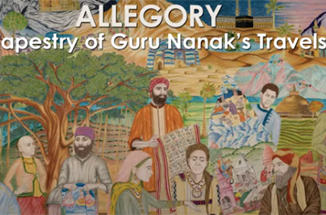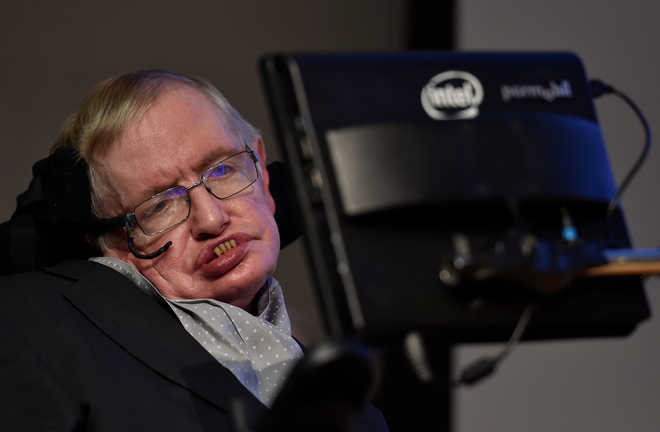
“Modi has his nose in front on these considerations and also because of his communication skills. But if he needles his political rivals to the point of desperation, like what he is doing with the AAP in Delhi, disparate forces will stack up against him for sheer survival. Misusing powers to deter critics, while going easy on supporters by releasing jailed convicts prematurely or allowing prolonged release on parole, will be noted by those voters who are wedded to the ideals of justice and equity. Reluctance to act against a party strongman accused by renowned women wrestlers of sexual harassment can influence female voters.”

The controversy over the inauguration of the new building to house our Parliament was totally unnecessary. What is more relevant is whether the spanking new premises will be useful or not. The trend, of late, is to argue over issues outside Parliament on the streets, where the language used can be more colorful and lies can be bandied about without an instant challenge.
If Opposition politicians want to emulate Modi, they will first have to displace him from his pedestal in 2024.
What exactly did the Opposition gain by boycotting the inauguration by our nation’s most ‘Prominent Citizen’? It is true that our Prime Minister utilizes different vehicles to remind citizens of his omnipresence. What is wrong with that? He is a politician, extremely adept at popularizing himself. It will be difficult to compete with him as he occupies a commanding position on the popularity index. If Opposition politicians want to emulate him, they will first have to displace him from his pedestal in 2024, and that will not be easy.
The main Opposition parties agreed on which dignitary was appropriate for doing the honors on May 28 — the nation’s first tribal President. The selection of an Adivasi woman to occupy that exalted, albeit ceremonial, position was hailed as a coup of sorts when it was announced. But everyone in India, including the President herself, knew that whenever it would be politically expedient to showcase the Prime Minister instead of the President, the choice would be preordained.
The BJP has never made a secret of its wish for a unitary form of government. The Sangh Parivar, influenced strongly by the importance of discipline and obedience to the ruler or the presiding elder — as it was in the days of the Ramayana — is happy with Modi’s sole presence on the political stage. Droupadi Murmu would have understood this by now. She has not disputed her benefactor’s right to assert his popularity during inaugurations even where the President should have been showcased by right.
The BJP feels that the inauguration of the new Parliament building will contribute to its prospects in 2024. I do not think it will matter. The voter in 2024 will ponder more on his or her own well-being. Economic well-being will naturally be the top priority, followed by security of the homeland and security of life and property around his home.
Modi has his nose in front on these considerations and also because of his communication skills. But if he needles his political rivals to the point of desperation, like what he is doing with the AAP in Delhi, disparate forces will stack up against him for sheer survival. Misusing powers to deter critics, while going easy on supporters by releasing jailed convicts prematurely or allowing prolonged release on parole, will be noted by those voters who are wedded to the ideals of justice and equity. Reluctance to act against a party strongman accused by renowned women wrestlers of sexual harassment can influence female voters.
The inauguration of a highway, a fast train or a new Parliament building will not change the equation, even though such events are organized at the expense of the exchequer and not from the party’s coffers. Our peripatetic PM has been traipsing around the country throughout the year almost, inaugurating one construction or the other. The end result is that people have stopped looking at the remarkable progress in infrastructure development and, instead, started concentrating on the august persona of the Prime Minister himself. That does help the party.
Twenty-one Opposition parties boycotted the inauguration of the Parliament building. It made no difference. It cut no ice with the electorate, whose attention was turned to the Sengol, which is intended to signify the Speaker’s authority in the Lok Sabha. It was constructed by a jewelry firm in Tamil Nadu, which had also made the Sengol that was ceremonially handed over to Nehru by the last British Viceroy, Lord Louis Mountbatten, on August 14, 1947. The Opposition parties which came together to boycott the inauguration should unite to oppose the ordinance that the Central government has promulgated to nullify the Supreme Court’s judgment on the powers of the Delhi government over its bureaucrats. The ordinance attempts to overturn the mandate given by Delhi’s people to AAP. The ordinance vests authority to govern the National Capital Territory in bureaucrats despite the clear wishes of the people to the contrary.
If this move succeeds, the Central government could invent ingenious ways to negate the people’s mandate in other states where the double-engine government is not installed by popular will. And that is a disturbing thought. The Congress should beware of this possibility. Its dislike of Arvind Kejriwal should not come in the path of opposing the ordinance in the Rajya Sabha.
An ordinance has to be cleared by both Houses of Parliament within six months. The government faces no problem in the Lok Sabha, but there is one in the Rajya Sabha. If all Opposition parties unite, there is no way the BJP can push through an Act on the lines of the ordinance. The danger to state governments in non-BJP-ruled states is stark. It should be obvious to even the most trusting of the NDA’s allies that their installed governments will not be safe should this ordinance prevail. The headlong rush for a unitary, ‘Opposition-mukt’ government at the Centre as well as BJP governments in every state will turn this ‘mother of democracy’ (Modi’s term for our existing system of governance) into a ‘child of autocracy’.
From all indications at present, Modi will not find the going as easy in 2024 as it was in 2019 if the Opposition parties really unite. But I doubt if such unity is possible, considering the egos and aspirations of various leaders. I doubt if they will agree to put up a common candidate against a BJP nominee in every Lok Sabha constituency. If they agree to do so in a majority of the constituencies, they can expect to have a much stronger Opposition in the Lok Sabha than at present. That in itself should prevent this democracy from sliding into autocracy.
(The author is a retired Indian Police Officer and a former governor)





Be the first to comment